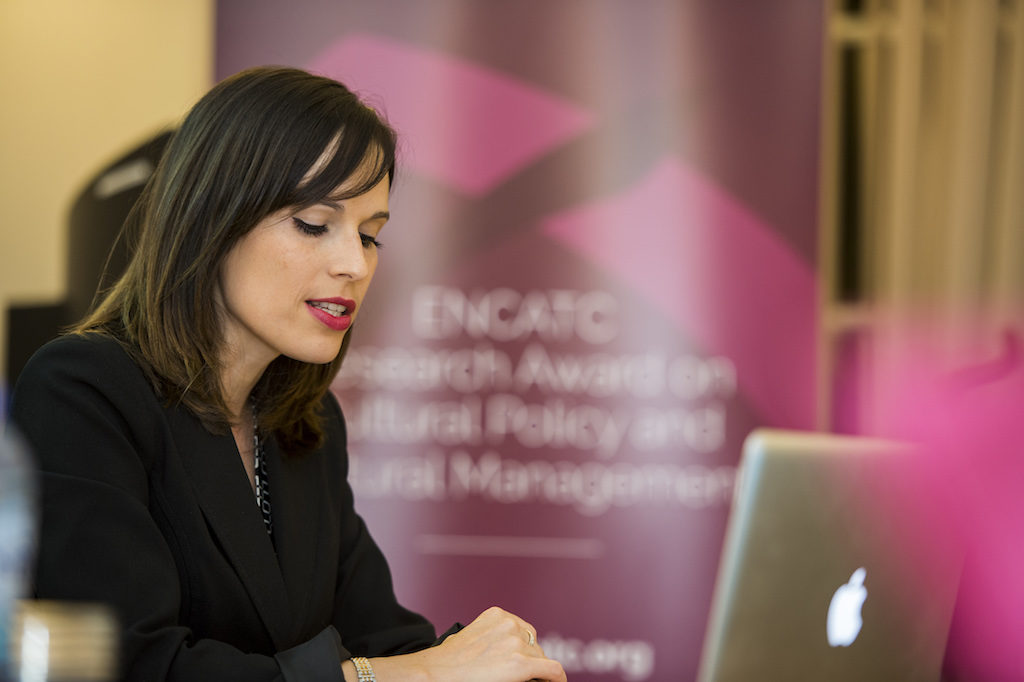In 2015, ENCATC interviewed Dr. Elodie Bordat-Chauvin, 2014 ENCATC Research Award Winner.
ENCATC: Since you won the ENCATC Research Award on Cultural Policy and Cultural Management in Brno last year what have you been doing?
Dr. Elodie Bordat-Chauvin: Since last year, I have been participating in the “Cultures and territorial dynamics” project as a contract researcher. This project is proposing an evaluation of cultural policies in the Greater South East of France. I am also part of a group of French and Argentine researchers working on the “Reading and writing in peripheral urban areas today (Buenos Aires and Paris)” project. Finally, I’ve been collaborating in a project to create a Groupement De Recherche International (GDRI) and a resource platform on public culture with researchers from Marseille, Paris and Barcelona.
I have also written the book from my thesis to be published by Peter Lang this autumn. I also wrote four articles from different parts of my thesis on the impact of the administrative reforms of 1990 and 2000 on cultural policies, the consequences of neo-liberal turn on these policies, and finally two articles describing the main results my thesis. I’ve also been teaching in different public and private universities in France.

ENCATC: What were the main findings of your PhD thesis entitled “The Dynamics of Changes in Public Policy. A Comparative Historical Analysis of Mexican and Argentine Cultural Policies”?
Dr. Elodie Bordat-Chauvin: Through historical analysis, this thesis reflects the emergence, institutionalization and evolution of public policy in the cultural sector in Argentina and Mexico between 1983 and 2009. It’s interesting to look at the changes in these policies resulting from the implementation of the decentralization process, transnationalization and the greater inclusion of the private sector (profit and nonprofit). This study’s main hypothesis study is that one can grasp the change in these policies by taking into account the socio- economic and political “contexts” of Mexico and Argentina, and by mobilizing four dimensions of analysis: the players, cognitive representations, institutional frameworks and instruments of public action.
ENCATC: Where do you hope this research will have the greatest impact?
Dr. Elodie Bordat-Chauvin: I hope this research will have an impact both in Latin America where cultural policy studies are missing according to political science, but also in Europe in the sub-field analysis on the change of public action.
ENCATC: How does an Award like this one helped to support the career of a young/early career researcher who has recently completed their PhD thesis?
Dr. Elodie Bordat-Chauvin: This Award represents first and foremost a guarantee for the scientific quality of the research conducted since it is evaluated by a jury of cultural policy experts from different countries around the world. The Award provides a special opportunity to translate and publish a book derived from its research by a prestigious academic publisher, allowing wider distribution work.
